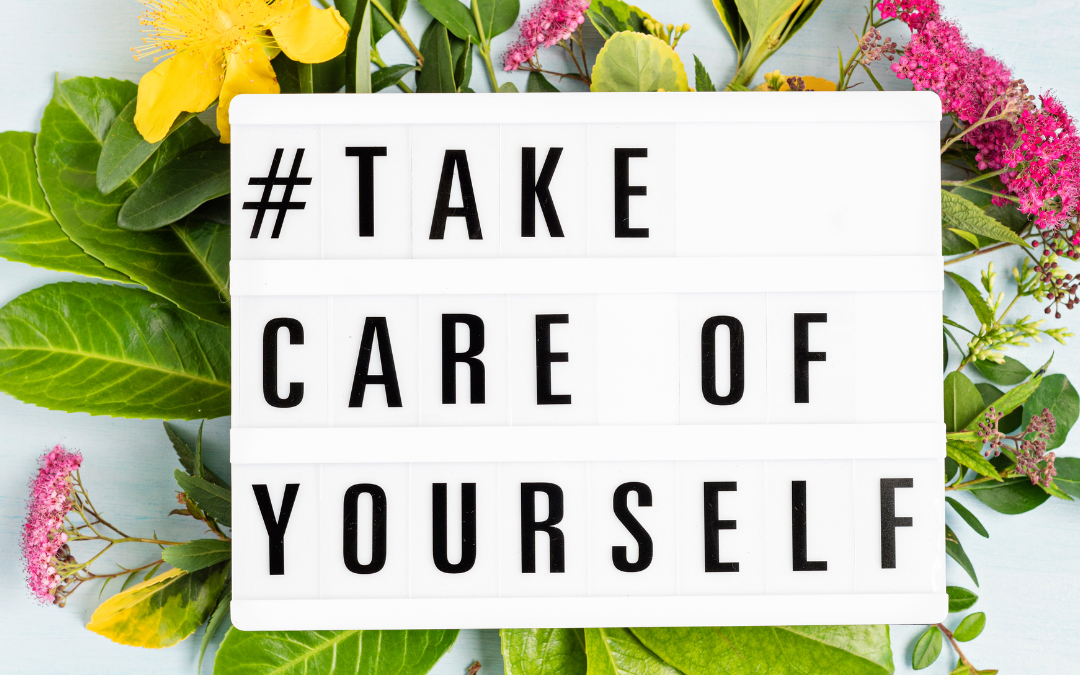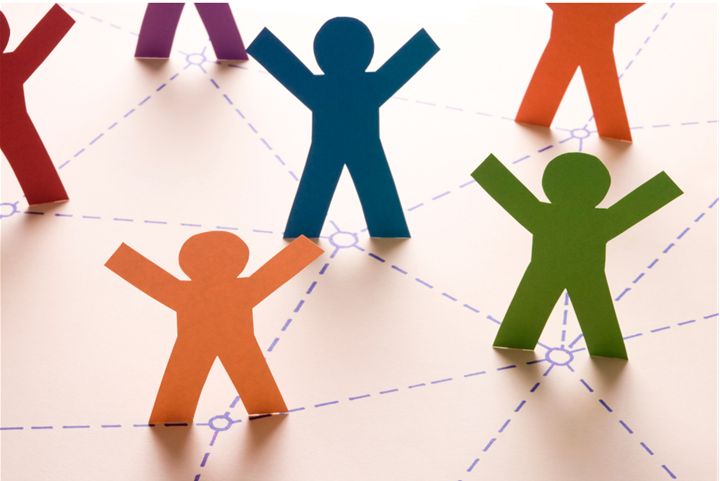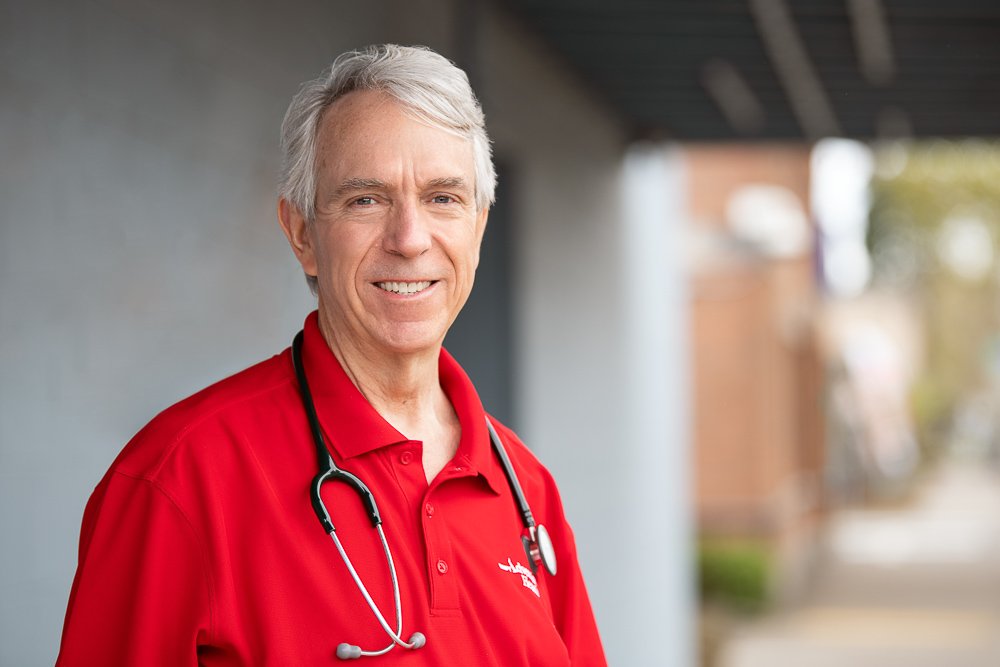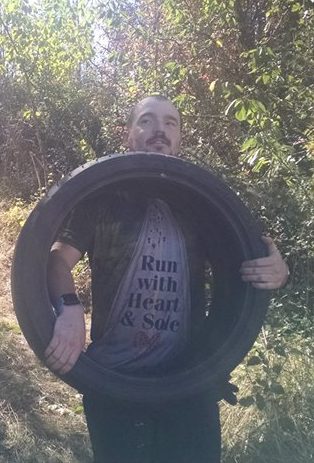
by Guest | May 24, 2023 | Connect Well, Featured
May is Mental Health Awareness month yet as a mental health professional, I focus on mental health year-round. I also approach mental health as multidimensional, meaning that it goes beyond just mental wellbeing and includes all 8 dimensions of wellness. If one dimension suffers, then overall wellbeing suffers and that impacts mental health even further due to increased stress and decreased coping mechanisms.
So, what are the 8 dimensions of wellness? Physical, emotional, intellectual, social, spiritual, financial, occupational, and environmental. Mental health is often believed to be comprised of our emotional, psychological, and social wellbeing. Yet if we do not take care of the spiritual, physical, financial, occupational and environmental dimensions of ourselves, we end up out of harmony and balance. When we are out of balance, we are not able to access and utilize coping skills and we will continue to make choices that negatively impact our overall wellbeing.
If you Google tips for improving your mental health you will get a variety of lists. Many of them will have things from a few of the dimensions. I would like to share small steps you can take in each of the dimensions to help you begin to build multidimensional mental health.
Physical
We often hear all the things we can do within physical wellness to improve our mental health. Have good sleep hygiene, get daily movement, eat a healthy diet, stay hydrated, take your meds and supplements, and manage any physical health symptoms or diagnosis. Yet we often do not hear about the correlation between mental health and the development of physical ailments. Just like physical wellness can help improve our mental health, untreated mental health can lead to disease. Depression has been shown to increase the risk for things like diabetes, heart disease, and stroke.
Emotional
Emotional wellness is all about having coping skills to help manage and regulate our emotions. Mindfulness, meditation, journaling, therapy, EFT tapping, and any other tool or practice that helps you navigate your feelings and cope with life’s challenges are all emotional wellness. Emotional wellness also helps us build problem solving and resiliency skills. This bolsters our mental health and aids in coping with any future stress or difficult situations.
Social
Social wellness is about having connections and relationships with others that ease stress, anxiety, depression, improve self-esteem, and provide comfort and joy in companionship. Without strong social connections, we are prone to isolation and increased mental health struggles, including increased risk for suicide. Healthy relationships include setting boundaries, honest communication, and mutual respect and trust. Healthy social connections have been shown to lower anxiety and depression, help with emotional regulation, increase empathy, and even have a positive impact on physical health through improved immune systems.
Intellectual
Isn’t intellectual wellness just mental health? No. Intellectual wellness is about the thinking parts of our brains, our cognition. It also includes our emotional and social functioning. Mental health is more about thoughts, feelings, mood, and/or behaviors. Intellectual wellness practices that can also boost or improve mental health are pursuing crafts or other creative hobbies and endeavors, reading or pursuing learning, and anything that requires thinking or problem solving. Brain health improves mental health because we process our emotions in our brains.
Spiritual
Spiritual wellness helps us by giving us a connection to purpose and meaning in life. It could be belief in a higher power or anything that gives you connection and meaning to life outside yourself. Without a connection to something bigger than ourselves, we can struggle to find meaning in life and this can exacerbate any mental health issues. Whether it is organized religion or a connection with nature, spiritual wellness is vital to mental health and overall wellness.
Financial
Financial wellness includes the knowledge and skills of planning and managing expenses as well as your money mindset. Do you have a negative relationship with money or negative beliefs? Do you stress over finances? I wrote about developing a healthy relationship with money last month. One thing you can do is have a “money date” with yourself each week where you check in with your finances and get your energy and mindset in a good space around your financial situation. This will reduce stress and improve mental health through improved financial wellness.
Occupational
Occupational wellness relates to all aspects of how happy or satisfied you are in your job or career. Do you work a job you dread going to or do you like where you work and who you work with/for? Does your job or career offer benefits and an environment that encourages wellness and the ability to do self-care and take time for mental health? Are you working to survive or doing what you love? If you have a healthy work environment and work a job or career that you are passionate about and enjoy, then you will have improved mental health and overall wellness.
Environmental
Environmental wellness is related to how we impact our environment and how, in turn, it can impact human health. Things like recycling, reducing waste, water conservation, and using sustainable products all help care for our environment. In return, our environment can continue to help us sustain healthy living. It can also be that you have a comfortable, healthy, safe, and welcoming home environment. When our homes are not safe or comfortable, this can interrupt our mental health and overall wellness.
Each of the 8 dimensions can impact one another and impact our mental health. Overall wellness is a codependent web woven between the dimensions. Hence the importance of taking small steps to improve each area and maintain harmony between them in order to have optimal mental health. I hope you are all taking great care of yourselves and finding ways to be multidimensional in your wellness.
AUTHOR: Amanda Ferrat, Founder of Value Yourself Counseling LLC and Certified Advanced EFT Practitioner & Wellness Counselor
Other wellness questions? Email us at info@tillamookcountywellness.org. For more local health and wellness information, visit www.tillamookcountywellness.org or follow Tillamook County Wellness on Facebook and Instagram.

by Guest | May 3, 2022 | Connect Well
Each year, people across the nation recognize the month of May as Mental Health Awareness Month. This month-long health observance is a great time for community members to focus on mental health. A few ways community members can observe Mental Health Awareness Month are by learning about mental health topics, identifying local mental health resources, supporting local prevention and treatment efforts, and highlighting behaviors that may help to keep yourself mentally healthy.
Connections can help a person stay mentally healthy. These connections have benefits including increased self-esteem, increased happiness, reduced anxiety, increased empathy, improved relationships, and a greater life purpose. Connections can take place both internally within yourself and externally by interacting with those around you. Three types of connections that are important are connections to yourself, connection with friends and family, and connections to local resources.
Connect with Yourself: Self-care is the act of taking intentional steps to provide yourself with care. Self-care is accessible to anyone, can cost as much or as little as you would like, and does not have to be time consuming. Health screenings, health checkups, eating a balanced diet, staying hydrated, getting quality sleep, grooming, exercising, writing in a journal, breathing exercises, meditation, time management, spending time in nature, and practicing mindfulness are all forms of self-care that you may consider.
Connect with Friends and Family: Connecting with friends and family is a great way to get emotional support, learn from others’ experiences, and to have fun. Community members can maintain their current relationships by keeping in touch, whether that’s by sending a text or email, setting up a video conference meeting, making a phone call, sending a direct message on social media, or meeting up to spend time together. Community members can develop new connections to expand their social circle by volunteering, attending a class or training, joining a club, going to a community event, going to a health center, joining a committee at work, or by joining one of the Tillamook County Wellness walking groups.
Connect to local resources: Four resources to consider are the Tillamook County Wellness’s This Way to Well-Being, Tillamook County Wellness’s website, 2022 Best of Health and Wellness Guide, and prevention programs presented by the Tillamook Family Counseling Center.
- This Way to Well-Being: Tillamook County Wellness’s “This Way to Well-Being” map activity is an activity for both individuals and families. The points of interest on this map are health-focused and divided into categories that represent different aspects of well-being, including activities centered on connecting with yourself and others. These include attending a training, getting an annual check-up, checking in on a loved one, starting a daily gratitude routine, volunteering, and attending a community event. Visit our website to view the map and learn about how you can win a prize for participating in one of these activities.
- Tillamook County Wellness Website: The Tillamook County Wellness (TCW) website is reliable place to get health and wellness information. The website features blogs, a community calendar, and information about local resources. Community members can find resources in the connect-well section of the website. This section includes resources for mental health services, chronic disease management, child development, childcare, community education, financial assistance, access to food, and so much more.
- The 2022 Best of Health and Wellness Guide: This guide has a health and wellness directory, short bios of select local health providers, articles, and other resources. The guide can be downloaded at the Headlight Herald website.
- Tillamook Family Counseling Prevention Programs: Throughout the year, the Tillamook Family Counseling Center offers a variety of programs including underage substance use prevention, problem gambling prevention, suicide prevention, and parent supports. Two programs that will be offered in May are “Introduction to Underage Substance Use and Gambling Prevention” and Question, Persuade, and Refer Gatekeeper training (suicide prevention training). The “Introduction to Underage Substance Use and Gambling Prevention” presentation will be offered virtually May 9th from 10:00-11:00AM. The Question, Persuade, and Refer Gatekeeper training will be offered virtually May 11th from 10:00-11:30AM. For more information about these trainings email janeanek@tfcc.org.
To stay up to date on the latest wellness news be sure to sign up for the TCW newsletter and follow TCW on Facebook and Instagram.
AUTHOR: Janeane Krongos, Tillamook Family Counseling Center
Other wellness questions? Email us at info@tillamookcountywellness.org. For more local health and wellness information, visit www.tillamookcountywellness.org or follow Tillamook County Wellness on Facebook and Instagram.

by Guest | Feb 2, 2022 | Connect Well
Social media is a mixed bag of sorts. It can lead to poor sleep quality, and fuel mental and emotional fatigue. It can be a very toxic experience depending on your perspective, how much time you spend on it, who you follow, and how you choose to interact. It can also be a wonderful tool which connects you to the people you love, niche hobby groups, meet-up opportunities, cultural awareness, and so much more! It’s a truly powerful source of communication. The speed in which the information, thoughts, feelings, and concepts within the content is exchanged can quickly overwhelm and exhaust anyone. It’s healthy to sometimes step back and take a break from the virtual world for a period. There are other ways to engage online which might help lessen the stress you’re feeling from the content you consume.
Being intentional about who you follow can make or break your experience online. There is so much aggression and misinformation, curating your feed will change the way you see the world. Follow users who matter to you and unsubscribe from those who cause you undue stress. Some differences in opinion are totally healthy and normal, but if those you follow engage in a way that is disrespectful, what are you gaining from that connection?
Find stimulating content creators that reflect your unique interests. This can help you to meet others virtually and build a real connection over time! You might find a local group meet-up to make friends in person. Social media is intended to foster connection and collaboration, it’s all about how you use it.
On the other hand, seek out accounts from people with diverse interests and perspectives. Find people from cultures completely different than your own. Find people who don’t look or think anything like you and try to put yourself in their shoes. Social media functions by putting us in a labeled box and providing increasingly tailored information to us based on our activity. Building cultural awareness is an intentional process but can lead to unbelievable opportunities and insights.
Sometimes it can seem like there are insurmountable divides in our society, and closing those gaps starts when we see the world through someone else’s eyes. Social media allows us to conveniently see and interact with perspectives from all over the world for the first time in human history. It gets a bad rep, but as with any technology it’s all about how it’s used.
Phones nowadays have locks and filters that can limit the amount of time we spend on social media apps. They have analytic trackers that can show you your usage history. These are valuable tools at your disposal! The distraction of a never-ending news feed can be alluring, but the apps benefit when you lose track of time. Setting timers on your phone will put the power back into your hands. Taking a break from social media all together is a wonderful chance to recalibrate and connect back in with yourself.
Social media should be used to your advantage, not to take advantage of you. Hopefully these tips can help you to feel more in control over your feeds and encourage you to try something new!
AUTHOR: Erin Washbon, OHSU Dietetic Intern
Other wellness questions? Email us at info@tillamookcountywellness.org. For more local health and wellness information, visit www.tillamookcountywellness.org or follow Tillamook County Wellness on Facebook and Instagram.

by Guest | May 19, 2021 | Connect Well
“I felt like I was at the bottom of a deep well with no way to get out.” This is how one patient described their depression symptoms to me. Another patient having panic attacks said, “All of a sudden I was terrified and thought I was going to die, but I didn’t know why.”
Our mental health is just as important as our physical health, and the two are closely connected. After all, our brain is part of our body. Over 20 years ago I experienced an episode of depression that required medical treatment. I, too, felt like I was at the bottom of a well. I couldn’t understand why people around me were enjoying life when I could not find any enjoyment in my own life. I sought medical help and I successfully made my way through and came out the other side.
I learned from that episode that self-care is vitally important to both our physical and mental health.
Many of the lifestyle choices that improve our physical health can also improve our mental health. Mental health problems can sometimes be just as serious as physical health problems, so don’t hesitate to contact your health care provider if you have any concerns.
The National Institute of Mental Health says it well, “Mental health is more than the absence of a mental illness—it’s essential to your overall health and quality of life.”
What steps can we take to be mentally healthy?
Move! – No, I don’t mean pack your bags and relocate. I mean move your body! Walking 30 minutes a day can work wonders. It can even be broken up into 10-minute walks, 3 times a day. If you can only walk 20 minutes or 10 minutes at a time, go for it. Join a walking group for group support and fun interaction. Or, watch for the TBCC catalogue in your mailbox each quarter for the latest group fitness programming from partners like the Tillamook YMCA and NCRD.
Spend time outdoors – science tells us that we get extra benefit from being outside. Being outside can be a chance to take a break and enjoy some peace.
Make Healthy Food Choices – including lots of fruits and vegetables and whole grains in your diet helps reduce inflammation, helps with digestive health and helps you feel better overall. The Mediterranean Diet is a good place to start.
Sleep – try to get a minimum of 7 to 8 hours of sleep as often as you can. Avoid using your cell phone, computer or TV close to bedtime because blue screens can make it harder to sleep well.
Stay connected to positive people – Spend time with supportive friends and family. Healthy relationships help us feel better.
Relax – try to set aside time daily for yourself to sit and relax without using your computer, TV or cell phone (unless you are using a relaxation app). Try meditation, prayer, yoga, Tai Chi, Qi Gong or other calming activities. This is time for YOU. Check the schedule at the Tillamook YMCA for free community classes such as Tai Chi and Qi Gong.
Practice Gratitude – make a list of things you are grateful for, and before you go to sleep at night think of 3 positive things that happened during the day.
If you are already feeling stressed or overwhelmed, this list might be too long to tackle all at once. Choose one activity from the list to focus on and give it a try. I have been working on getting consistent sleep and it has made a big difference in how I feel.
What can we do to help a friend or loved one struggling with mental health issues? The best thing to do is to be present. Be with them. Listen. You don’t have to give advice or try to solve their problems. As someone who has been in that situation, I can tell you that just having someone there by your side can make all the difference in the world.
And if you feel you might need professional help, please know you have options. Talk to your health care provider. Many primary care offices have mental health professionals as part of their patient care team to make it easy for you to get the care you need.
Like physical health, mental health is not just one condition. In the way that our physical health can be affected by a wide variety of issues such as asthma, diabetes or high blood pressure, our mental health can be affected by a variety of issues including anxiety, depression, PTSD, bipolar disorder and others. The National Institute of Mental Health web page has a list of Health Topics to help us learn about and understand our mental health.
Knowledge is power. Understanding mental health helps us be better able to manage it. And, self-care is the one thing we can do for ourselves, often at no extra cost.
Visit the Tillamook County Wellness page for more articles about staying mentally healthy.
AUTHOR: Dr. Ben Douglas, MD Adventist Health Tillamook
Dr. Ben Douglas has been providing healthcare for more than 35 years. He is board certified in Family Medicine and Lifestyle Medicine. His focus is keeping people healthy from birth through the golden years. In his free time, Dr. Douglas enjoys cooking, running, sailing and playing guitar.
For more local health and wellness information, visit www.tillamookcountywellness.org or follow Tillamook County Wellness on Facebook, Instagram and Twitter.

by Guest | May 6, 2017 | Move Well
By Jeremy Mulcahy-Hill, Assistant Fitness Director, North County Recreation District
What if I told you that the benefits of exercise go beyond fitting into that pair of jeans you’ve been holding on to? Fitness has the ability to reshape our lives. From magazines, books, and blog posts the key emphasis is generally focused on the physical benefits. The ability to transform one’s body seems to have captured the attention of the world. The changes that exercise can invoke internally are seemingly second to those of external change.
During a workout not only does our body change, but so do our minds. We experience personal accomplishment on a daily basis through exercise. Whether it’s showing up to the gym, setting a new personal best, or trying a new movement you’ve been curious about. These little victories add up, turning the tide of whatever battle you might be dealing with. Stress, anxiety, and depression, the trifecta of misery.
This battle of mental mettle goes a bit deeper though. These small, confidence boosting wins for “team you” play a part in the bigger mental health picture. Physical fitness also helps us to increase things other than the size of our biceps. Our brain is one of our hardest working muscles and exercise puts it through its paces. Research has shown that over time exercise can be an effective treatment for major depressive disorder, also known as depression. With most treatment for this sometimes devastating disorder, the hippocampus is enlarged. This special little piece of our cognitive puzzle is the power house from which serotonin is released. Serotonin is a little chemical in our body that helps us have a feeling of satisfaction and fullness and which lowers anxiety and aggression. Cool, huh? On top of that, exercise increases chemicals released in our mood centers. Norepinephrine, commonly known as “the fight or flight” chemical, increases arousal, focus, and attention. Then there is Dopamine, our body’s way of rewarding us. This little guy helps drive motivation, enthusiasm, and focus. All of this means that exercise is a great first-course of action to defend against depression. We also know that it is a great addition to other interventions for more severe cases.
Bringing this package of life-changing potential together can start a chain reaction in our day-to-day lives. Small victories build to bigger wins. This helps to build up confidence, a cornerstone of positive self-talk. Add in our body’s chemical release mechanisms and you can begin to see the truly amazing way that exercise can change one’s life immensely. So, next time you’re feeling down, anxious, or stressed out, take a walk, go for a jog, hit the weights, or unwind with some yoga. Your body will thank you and you’ll feel all the better for it.





